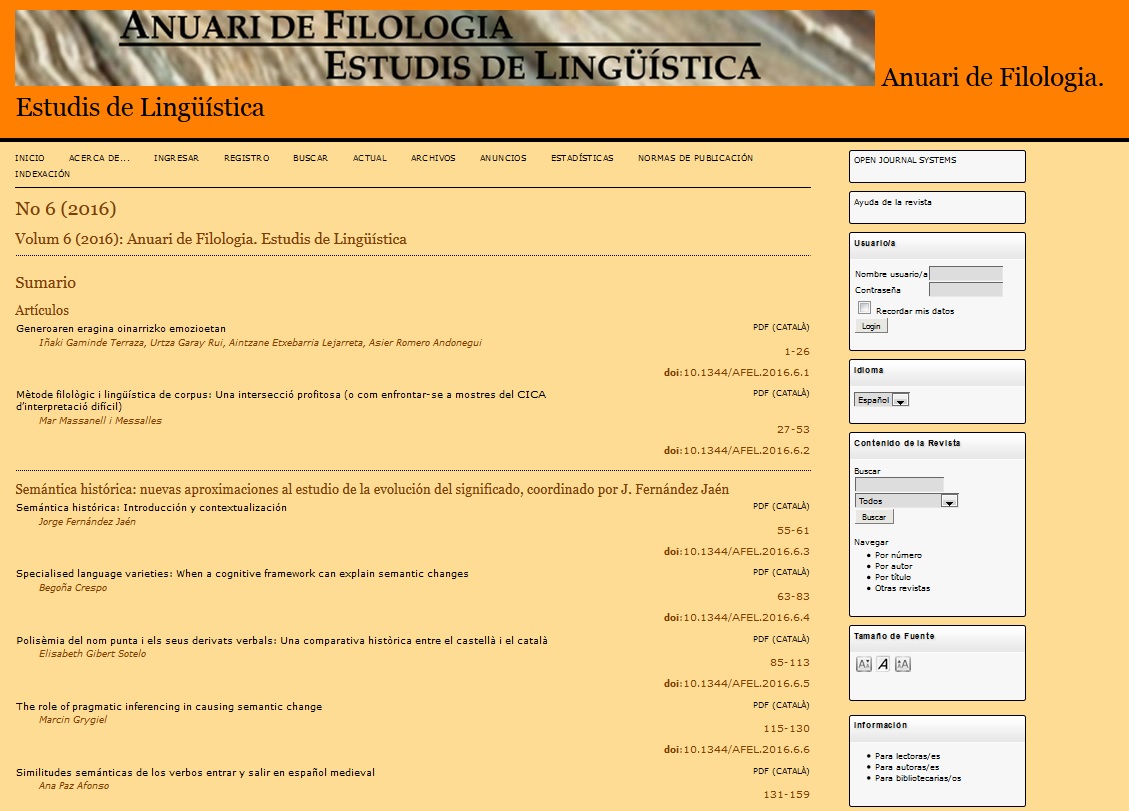Grammar, discourse, orality: the "invisible" forms of positive polarity in colloquial spanish
Article Sidebar

Main Article Content
Araceli López Serena
Contemporary grammarians usually accept that the Latin model of echo-response to total interrogatives through the repetition of the verb which the Spanish language kept active until the classical period has only survived to the present day in two Romance languages: Portuguese and Galician. However, colloquial Spanish corpora include numerous examples of communicative exchanges where the second member of an adjacent question-answer [or initiative interventionreactive intervention] pair shows a repetition of the main verb in the initiative utterance (not necessarily interrogative) to which the reactive utterance replies. For the purpose of making visible these apparently “invisible” forms of positive polarity in colloquial Spanish, this work brings together a considerable number of examples and suggests undertaking their analysis, in a programmed way, from the essential distinction between forms belonging to idiomatic knowledge and discursively possible forms, the updating of which either responds to conceptional −and therefore universal− possibilities or is associated with discursive traditionality phenomena.
Keywords
positive polarity, colloquial Spanish, repetition, echo responses, conceptional variation, discursive traditionality
Article Details
How to Cite
López Serena, Araceli. “Grammar, discourse, orality: the ‘invisible’ forms of positive polarity in colloquial spanish”. Anuari de filologia. Estudis de lingüística, no. 8, pp. 57-83, https://raco.cat/index.php/AFEL/article/view/348571.
Rights
Copyright
The authors who publish in this journal agree to the following terms:
- Authors retain copyright and grant the journal the right of first publication.
- Texts will be published under a Creative Commons: Reconeixement 4.0 Internacional license.
Most read articles by the same author(s)
- Araceli López Serena, Investigar la lengua hablada, hoy , Anuari de filologia. Estudis de lingüística: 2022: Núm.: 12
- Carmen Fernández Madrazo, Araceli López Serena, From Mitigation to Cohesion. On the Polyfunctionality of Pragmatic-Discursive Mechanisms Beyond Discourse Markers , Anuari de filologia. Estudis de lingüística: 2022: Núm.: 12
- Araceli López Serena, María Uceda Leal, Discourse markers and constructional schemes. The discursive patterns of Sp. bueno [‘well’] in Pío Baroja’s La lucha por la vida , Anuari de filologia. Estudis de lingüística: Vol. 14 (2024): Anuari de Filologia. Estudis de Lingüística